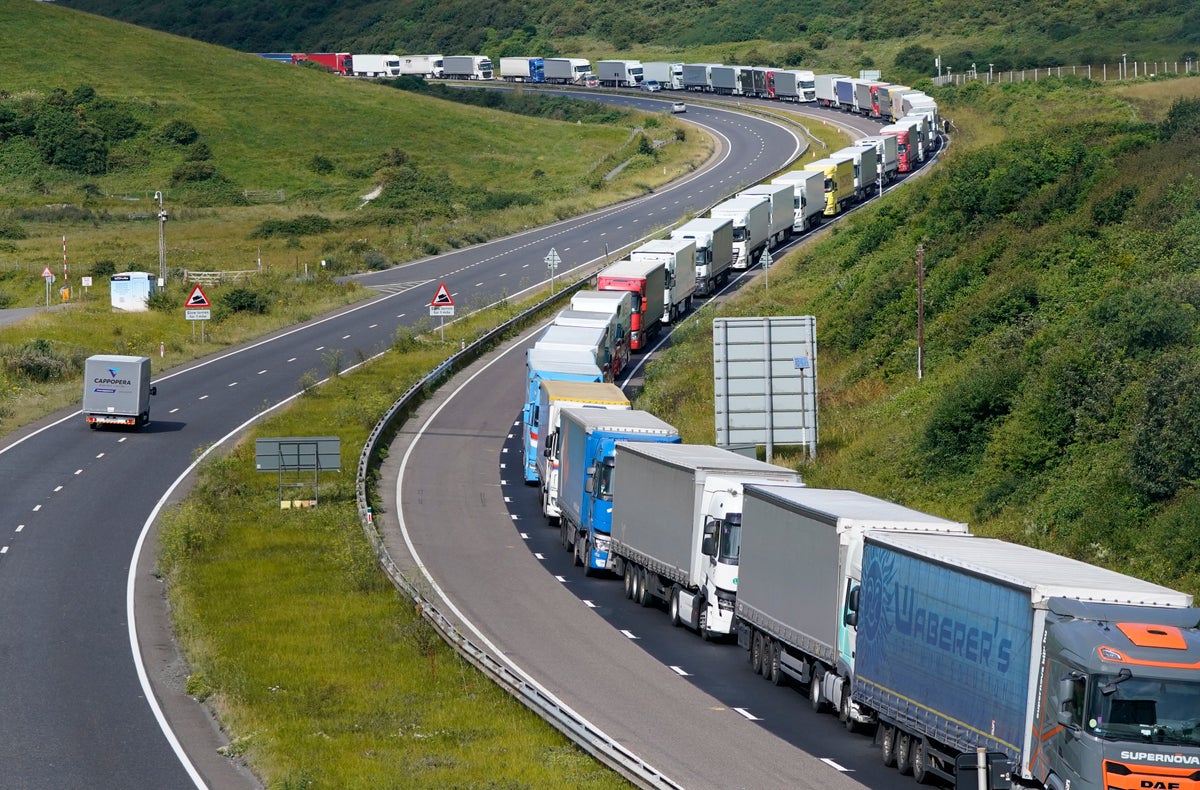
New Brexit border checks on food, animal and plant products imported from the EU are expected to be delayed for a fifth time.
The rules had been set to begin in October but are to be pushed back again over fears they will fuel inflation.
Ministers are thought to be concerned that the extra red tape caused by the Brexit bureaucracy will increase costs for importers at a time when food prices are already under pressure.
It comes after The Independent revealed that the UK tried to bypass Brussels and go directly to member states to discuss the introduction of the checks – prompting a hostile reaction from the European Commission.
The decision to delay the introduction of the new Border Operating Model is expected to be confirmed by government ministers soon, the Financial Times reports, citing a government insider.
Industry representatives welcomed the delay and said it would help avoid "major disruption" at the border and in supermarkets.
“The government has made the right decision to postpone," said Shane Brennan, the chief executive of the Cold Chain Federation.
"UK food retailers, hospitality businesses and consumers were in line for major disruption because many EU food-producing businesses supplying into the UK are not ready for the new requirements."
The UK's latest food inflation figures are still stubbornly high, with prices increasing rapidly.
UK news in pictures
Show all 50According to the Office for National Statistics, the price of food and non-alcoholic beverages rose by 13.4 per cent in the year to July 2023. This is down from a high of 19.2 per cent in March.
Before Britain left the EU, its membership of the EU single market and customs union meant suppliers could bring food into the country from Europe without any paperwork.
But the decision to leave means a major increase in bureaucracy.
Suppliers will have to deal with sanitary and phytosanitary (SPS) checks and a requirement for a health or veterinary certificate.
These controls already apply to British exporters to the EU and have since 2021 – but have been repeatedly delayed in the opposite direction.
They had originally been set to apply from 2020 but have been repeatedly delayed. The UK government has struggled to build the capacity for a system of checks, including land for large lorry parks.







